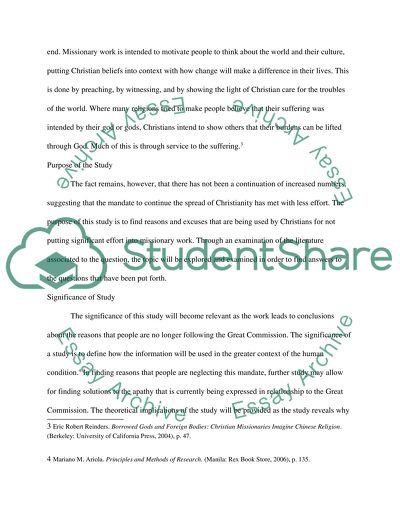Cite this document
(Why Do Christians Fail in Their Mandate Research Proposal, n.d.)
Why Do Christians Fail in Their Mandate Research Proposal. Retrieved from https://studentshare.org/religion-and-theology/1612582-how-professing-bible-believing-evangelical-christians-view-their-responsibility-to-the-great-commission
Why Do Christians Fail in Their Mandate Research Proposal. Retrieved from https://studentshare.org/religion-and-theology/1612582-how-professing-bible-believing-evangelical-christians-view-their-responsibility-to-the-great-commission
(Why Do Christians Fail in Their Mandate Research Proposal)
Why Do Christians Fail in Their Mandate Research Proposal. https://studentshare.org/religion-and-theology/1612582-how-professing-bible-believing-evangelical-christians-view-their-responsibility-to-the-great-commission.
Why Do Christians Fail in Their Mandate Research Proposal. https://studentshare.org/religion-and-theology/1612582-how-professing-bible-believing-evangelical-christians-view-their-responsibility-to-the-great-commission.
“Why Do Christians Fail in Their Mandate Research Proposal”. https://studentshare.org/religion-and-theology/1612582-how-professing-bible-believing-evangelical-christians-view-their-responsibility-to-the-great-commission.


